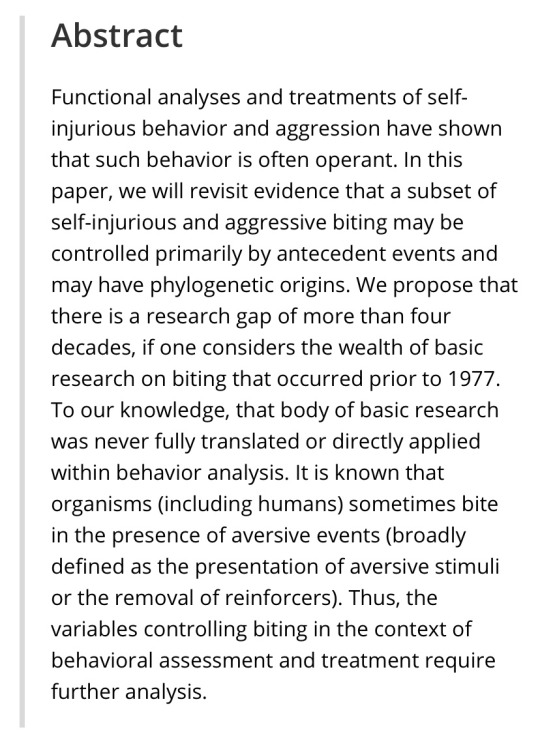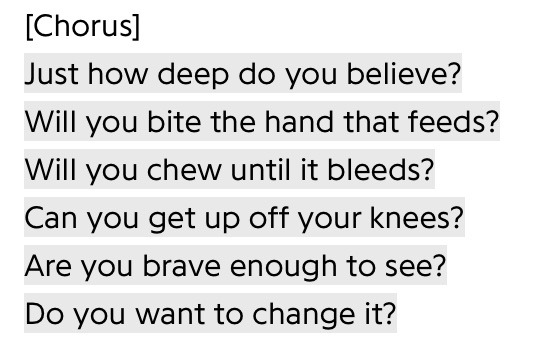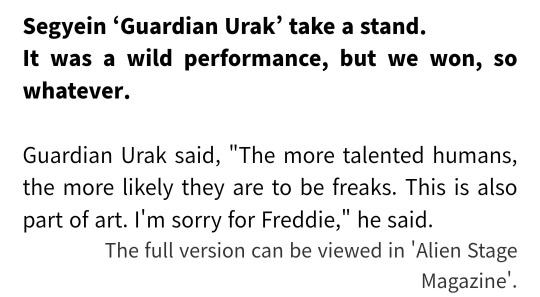#Higher Treatment Success
Text
In the world of psychiatry, ensuring that the treatments administered are both safe and effective is essential. Evidence-based treatments play a critical role in this, offering several undeniable benefits.
0 notes
Text



unconditional love is our super power
however, to be walking as love, open-heartedly, you need strong and clear boundaries, unconditional love is not unconditional tolerance
embodying unconditional love requires a deep commitment to your heart’s desires, love can transmute blocks and barriers, choose to be open to love, choose to be open to feel the safety of love
choose love daily, love is a daily commitment, a series of choices made with devotion and intention, the more you allow internally, the more you allow in your life externally, start relating more with the magic within you
return to your true state of love
#law of assumption#manifestation#manifesting#self concept#self love#loa#affirm#affirmations#affirming#goddess treatment#loassumption#loa success#love affirmations#love manifestation#manifesting love#unconditional love#love#affirmyourlife#higher self#spiritual awakening#master manifestor
53 notes
·
View notes
Text
The thing that pisses me off about fourth wing is that the idea of the mother condemning her daughter-- the spitting image of her deceased husband & someone with a physical disability in an extremely ableist world-- to death in a way that won't get her removed from her own position in the military is interesting! It's just not what the book is at all. Ffs, it could still be a romantasy book with that plot hook! I wouldn't read it bc that's not my cup of tea, but it could've been super interesting & a book that I recommend to other people! But it's not.
#someone shouls rip off that aspect of fourth wing and write it#**should#like#you could make it abt the daughter navigating the system#she befriends someone of higher station that sees what's happening and starts to plot with her so she survives#or she actually uses her wit and intelligence to weasel out of it#or squeeze her way into success#or she gets preferential treatment bc the people in charge of her clas are like 'holy shit i CANNOT be responsible for the death of#[military leader]'s daughter I'll be burned alive'#all interesting angles#but no#thats not what it is
0 notes
Text
"They found that teachers give different amounts and types of attention to different genders. Boys were called on more than girls and asked more challenging questions, particularly in STEM subjects. If they hesitated, teachers were more likely to give them more time or reframe the question. With girls, they were more likely to repeat it and ask someone else. Other studies have confirmed that boys get more attention from teachers throughout school. They are much more likely to get verbal and nonverbal attention from gym teachers specifically. This attention disparity reinforces, and is likely driven by, the idea that boys are “naturally” more aggressive while girls are more submissive; where boys demand attention (and are expected to demand more attention), girls are told to wait quietly for it.
Studies have also found that boys and girls are praised for different things. Girls’ work is more often praised for physical appearance, like neatness, rather than content. They are often rewarded for success where boys are praised just for effort. They are also criticized more for incorrect answers while boys are praised more for correct answers. When it comes to behavior, girls are more often praised for good behavior (even if it isn’t related to the task or lesson) while boys are criticized more for bad behavior. This all reinforces the bias that girls’ effort and knowledge is less important than appearance and success. This may explain the trend of girls having higher GPAs than boys; from a young age, they are taught to hold themselves to a different standard, and to associate their self worth with their grades since they are praised for success and results rather than effort or knowledge.
These differences in treatment impact what students think they are capable of. Boys are more likely to enroll in STEM classes and take higher level versions of those classes. As a result, there are significantly less women in STEM fields, which contributes to the bias that boys are better at math and science despite brain scans proving this to be false. While boys are often pushed into higher paying career roles (engineers, doctors and lawyers), girls are more often pushed into lower paying career roles that emphasize the stereotypically feminine role of caretaking (like nurses or teachers). It may be that women dominate these lower paying careers because they are seen as better suited for low paying jobs, or that these jobs are seen as women’s work and therefore undervalued in terms of pay. Regardless, the point stands; the subtle differences in how teachers treat students has a major impact. The wage gap still stands at around 82 cents to every dollar a man makes."
397 notes
·
View notes
Text


"New (old) perspectives on self-injurious and aggressive biting" published in Journal of Applied Behavior Analysis / Nine Inch Nails- The Hand that Feeds
I was troubled to see a trend of claiming that Autistic people who do not support Applied Behavior Analysis (ABA) are a group of "low-support-needs" autistics who are monopolizing the conversation and taking resources away from autistics with higher support needs—I think it is misunderstanding.
Individual positive or negative experiences with ABA are irrelevant here—the fundamental core of the therapy is behaviorism, the idea that an autistic person can be "treated" by rewarding "desirable" behaviors and punishing "undesirable" behaviors, and that an increase in desirable behaviors and decrease in undesirable behaviors constitutes successful treatment
In researching I found that ABA practitioners have published statements condemning conversion therapy. They refer to an unfortunate historical association between ABA and conversion therapy, but it is not association—ABA literally is conversion therapy; the creator of it used it to try to "cure" little boys that were too feminine.
ABA is considered "medically necessary" treatment for autism and the only "proven" treatment, in that it is proven to create decrease in "undesirable" behaviors and increase in "desirable" behaviors.
Undesirable behaviors for an autistic person might include things like stimming and talking about their interests, desirable behaviors might include eye contact, using verbal speech, playing with toys in the "right" way.
The BCBA behavior analyst code of ethics does not prohibit "aversive" methods (e.g. electric shock) to punish undesirable behaviors
The code of ethics only discusses the consent of the "client," not the person receiving the treatment
Many people will say "my child's ABA therapist would never make them repress harmless stims, give up their interests, use electric shocks...They understand the value of neurodiversity and emphasize the consent of the child..."
But consider...if nothing binds or requires an ABA therapist to treat stimming as important, nor restrains them from using abusive techniques, nor requires them to consider the consent of a person being treated, what protects vulnerable people other than luck? The ABA therapist still has an innately unethical level of power over a child being "treated."
Furthermore, consider: can a therapy built on the goal of controlling the behavior of a person who cannot meaningfully consent to it, especially without hard limits or protections on the kinds of behavior that can be coerced or controlled, ever be ethical?
I found many articles that discuss teaching "compliance" in autistic children, treating "compliance" as a reasonable goal to strive for without qualification...
The abstract of the above article struck me with a spark of inspiration. Biting is an undesirable behavior to be controlled, understandably so, since most would feel that violence should not be allowed. But I was suddenly reminded of the song "The Hand that Feeds" by Nine Inch Nails, which is a play on the saying "Don't bite the hand that feeds you," meaning don't lash out against someone that is kind to you.
But doesn't "the hand that feeds you" implicitly have power over you through being able to give or withhold food? In this case, kindness can be a form of coercion. Thus "biting the hand that feeds" is used in the song as a metaphor for autonomy and resisting coercive power. The speaker asks the audience if they have the courage to test the benevolence of their oppressors, or if they will remain compliant and unquestioning even though they know deep down that it isn't right.
Likewise the article blunders into something unintentionally poetic when it recognizes that biting is an innately possible behavior in response to "aversive" stimuli or the "removal of reinforcers." Reinforcers and aversives in ABA are discussed as tools used by the therapist—the presentation of a preferred food would be a reinforcer, for instance (and is often used as such in ABA).
The journal article considers biting as a behavioral problem, even though the possibility that someone may bite can never be eliminated. Contrastingly, "The Hand that Feeds" highlights the coercive power behind the ability to control your behavior, even when that control appears benevolent and positive, and argues that "biting the hand that feeds you" is not only a possibility but a moral imperative.
Consider: In what circumstances would you bite someone? To defend your own body? To defend your life? Are there circumstances in which biting would be the reasonable and the right action to take?
What authority decides which behaviors are desirable or undesirable, and rewards or punishes compliance or resistance? Who is an authority—your therapist? Your teacher? Your caregiver? Any adult? Any person with the power to reward or punish?
In what circumstances might compliance be demanded of you? In what circumstances would it be justifiable not to comply? What authority decides which circumstances are justifiable?
Can you imagine a circumstance where it might be important for a child to not comply with the demands of an adult? For a citizen to not comply with the demands of a government? Which authorities demand compliance in a right and just manner, and which demand compliance to things that are evil and wrong? Which authority has the power to differentiate the two? Should you trust them? Will you bite the hand that feeds you?/Will you stay down on your knees?
#analysis#power#authority#aba#applied behavior analysis#aba tw#abuse tw#nine inch nails#music#psychology#autism#actually autistic#psych critical
2K notes
·
View notes
Text
Once again, I can't really gather my thoughts cohesively on this right now, so please bear with me. Just musing, so the ideas here might be a bit disconnected.
As a prodigy artist well-versed in more than just singing, it's no suprise that art is a prominent part of Till's character. Everything associated with Till seems to carry his eccentric artistic talent, right down to the abstract symbols painted onto his otherwise blank white t-shirt.




(Till's sketching and drawing seem to go hand-in-hand with his songwriting. Doodling and composition are two of his hobbies, and he's stated to be talented at both.)

(His appearance in TOP 3 emphasizes this messy, artistic angle. The symbols painted on the wall are similar to graffiti tags, usually associated with youth and rebellion. Furthermore, there is paint splattered on his face, staining color onto his disheveled hair and baggy clothes.)


(Even amongst the TOP 3, Till is presented with the most color. Between Luka and Ivan's main colors of white and black, their formal attire and elegant, charming personas, Till looks rather out of place.)

(Till's personal/special talent is floral art.)
Art is an integral part of Till's character, something that defines him and his desire for self-expression and freedom (it's no suprise that when Till loses his will to live in ROUND 6, he's dressed in plain and monochromatic clothes that lack any of his own artistic touch). Despite the ties between creativity and freedom, Till's talents are regularly taken advantage of and even tampered with due to the treatment he receives from his owner.
Guardian Urak is an eccentric segyein. A hustler, materialistic and rather pretentious. He shows great pride in Till's "uniqueness" and artistic ability, boasting that he has raised the best human-pet in history. In order to create the success that is Till, however, Urak had to execute his methods on several other pets beforehand. His practices include the thorough abuse of his human pets in order to coax out their talents, pushing them to their limits with harsh training regimens and painful experiments. Violence is a tactic utilized heavily within Urak's line of business, and the human pets under his ownership are the most openly abused.
Urak is said to abuse his pets to the point of severe mental issues. It's due to these mental issues that his previous pets have failed to achieve victory, showing great promise but never making it to the end. He seems to believe in the idea that the peak of a human's talent is tied with their instability, that the more talented a pet human is, they more likely they are to be a freak.

Urak pushes forward with the mistreatment of his humans despite their suffering. He believes it to be a part of creating exemplary art, playing into the idea of a tortured artist. Urak's pets were incredibly talented and top contenders for the title of champion. If not for their heavily deteriorated mental states, they would have brought Urak to victory long ago. It's quite clear that he does not intend on changing his methods because the humans he produces are some of the best products around. He doesn't want to change his methods, he wants a human that can withstand them.
Till's style is already established to be unique, nicknamed a "black sheep" in his official magazine page, emphasizing individuality. His brazen aggression in ROUND 2 caused him to attract much hate, but twice as many fans, too. The bashing of Freddie was framed as a bombastic and somewhat avant-garde performance act, referred to as art. Till's public persona was that of an eccentric and unpredictable artist, a highly reactive contrarian pet who presents both a high risk and high reward. Urak has produced another tortured artist, except this one is different (in his words, unrivaled). A higher caliber of pet, bringing him the closest to winning he's ever gotten thus far.
Till's various artistic talents seem to be things that he has developed on his own, stemming from his own desires and interests rather than something forced onto him by Urak. In one of VIVINOS and QMENG's livestreams it was stated that Till is inherently gifted, a creative genius since birth. Till uses his abilities as tools of rebellion and self-expression, writing his own music, vandalizing and adjusting segyein-provided material and outfits in order to make them more his own. It's unfortunate that even Till's attempts at rebellion are taken advantage of and instead used against him. Constantly battered and bruised, isolated in a cell, forced to endure experimentation, all of his artistic ingenuity and creations have been taken by the segyein and used to promote him as a product. He has been turned into a spectacle, his misery and abuse put on display for others to gawk at. Suffering for the sake of art.

#sorry i dont know if this makes any sense ummm#alnst#alien stage#alien stage till#alnst till#till alien stage#para.musing
350 notes
·
View notes
Text
GOOD THINGS HAPPENING FOR YOU IN NEXT 6 MONTHS ✧˖°.
Timeless | pick a picture | Masterlist




Tarot is not 100% correct all the times and does not replace medical or professional treatment. Your destiny lies in your own hands and you create your own reality. Kalki tarot is not responsible for any decisions made on behalf of this reading by anyone.
Pile 1
You are finally walking away from things that don't serve you in the next 6 months
Your hard work will be acknowledged by your seniors or superiors
Someone will offer you a helping hand or emotional support
Small investments will convert into big profits
Your intuition will increase and you will connect more to your higher self
Someone's true nature will be revealed to you (water sign, masculine energy)
Some truth will come to surface and will be known to you
A love message / offer / confession on valentine's day
You will gain stability after a long time of being drained
An exciting text message!
New friends, new people and new communication
Pile 02
You are getting the needed rest and relaxation
A trip of travel / break from work and going on a vacation
People who don't match up your energy are finally leaving your life in next 6 months
You will be blessed with Material abundance and generational wealth
A result coming in your favour
Your Emotional well being improving
Mental clarity and a state of letting go of things that don't serve you anymore
Alignment with your goals
You are getting some reward or recognition for your hard work
A manifestation is coming to you in the 3d
A successful deal will take place and things will go your way
A new relationship is forming here, something you were anxious about will go very well according to your plans
Pile 03
Your dream wedding is taking place
A party or meetup with friends and family
Your family and you are having a great time and things are being resolved by their own
A communication is coming fastly towards you which you were waiting for a long period of time
A wish fulfilment
International travel
Your trauma is being healed in the next 6 months
Maybe you will finally meet a therapist or a nurturing human being who will help u heal and serve an important purpose in your life
Balance and harmony in your mental state
Things are getting better for you
Something about your moon sign will be beneficial for you, or some astrology related thing happening with your moon sign in your favour
You will receive a bouquet of flowers
You will go to a beach / water body for relaxation
You learn something about your ex which will help u move on from them / their true nature will be revealed to you through divine intervention for your betterment
You will finally complete or break a karmic cycle.
Pile 04
A mental conflict or fight will get resolved
You are advised to not spend too much money on useless things
You will do some charity work or just volunteer for people
You will know some divine secret
A wish is getting fulfilled in the next 6 months
If you are thinking of confessing your love to someone, do it! They will day yes to you!
You will finally leave your comfort zone and go out on a date
Something significant from the past will inspire you to start something new soon
A new beginning in something is quickly on its way to you
You will be presented lot's of options in love or career to choose from
You will finally rise from the ashes
Your family or loved ones will help you with something with which u are struggling rn
A situationship will come to an end and will being communication
Things may get delayed for you but they are coming on the right time
#tarot reading#tarot blog#tarot cards#tarot#pick a card#tarot and astrology#tarot asks#pick a pile#tarot community#tarotblr#tarot deck#tarot readings#future spouse reading#divine counterpart#the divine masculine#spiritual disciplines#divine feminine#astro notes#channeled message#kalki tarot#tarot lessons#free tarot#twin flame#future spouse
749 notes
·
View notes
Text
mdni; tw slapping
Smacking Coriolanus Snow's face so hard his jaw breaks sounded like a great idea to you.
Never mind the fact that you were moaning his name so loud just the other day that you're sure someone overheard. Or that he grabbed your face and kissed you in a hidden corner of the hallway just yesterday morning, smearing your lipstick and walking away with the smuggest grin ever.
You hated him.
You hated the way he lit a fire in you, the way he'd always one up you in class and somehow always be right above you in academics. You'd creep up and overtake him for a mere moment before he's pulling ahead with that same smirk that would embed itself into your thighs when he kissed them. He knew how to push your buttons. Coriolanus teased everything about you, the way you dressed, how you said something in class, your grades (even if they were a point lower than his own). He was relentless and all you could do was give it right back to him.
Sometimes, you're able to get the upper hand outside of the academy. Sometimes, Coriolanus would let his guard down, especially if you were in his bed for hours. He would grow tired, more vulnerable and although he hated letting anyone see that side of him and he hated the way you'd look at him, trouble written all over your face; he welcomed it with open arms.
He let you take control and turn him into a whiny mess underneath you. It would be so easy, and the power you held over him in the bedroom would satisfy your own personal need for control over the Snow boy since he so often has power over you. Your relationship was this giant tug of war, a push and pull that felt never-ending. One moment, you're desperate for one another and the next, you think you might actually kill Coriolanus.
There was a caveat for Coriolanus' vulnerable side. But you weren't even really aware of it until you're taking the brunt of it from him in his room later that day.
You notieced that morning that his appearance was a little disheveled. It didn't look like he got much sleep and despite his crisp white button down being practically perfect on him, the buttons on one of his sleeves was still undone. You approached him and nodded at a secluded corner and he follows. You fixed sleeve, rolling it up just a little before buttoning it, your fingers brushing over the watch on his wrist for just a moment.
Coriolanus complained without you even saying a word, talking about some paper that he was working on and you'd shut him up with a kiss.
He broke away first, trying to fix some of his appearance and your hand, still resting on his shoulder, moved into his soft curls and tugged harshly on them so you can slot your lips back to yours. It was something you always did when you took control over him, and he knew this. He kissed you back, having missed the feeling of your lips on his. Your free hand not tangled in his curls rubbed down his chest to his belt, then below it in quick succession, pressing your palm against his bulge.
Coriolanus bit down on your lip and the glare he gave you when you pulled away, confused, would have been enough to send you to your knees, begging for him to forgive you if you weren't at the academy.
What you didn't know is trying to control Coriolanus in this setting of all places really pissed him off. He was cold to you the rest of the day, not even giving you his usual teasing treatment. That is, until the last hour of class, he pushed a piece of paper into your coat pocket and he had written out in what looked like rushed handwriting something about wanting to study with you at his place.
You were almost scared to go. Almost. But your body still brought you there despite you running laps in your head about what he could possibly be planning to do.
And now, you were laying on your front in his bed, ass up, completely naked. Coriolanus was still dressed in his school attire, but he had taken his suit jacket off, his sleeves rolled up higher. His hand palmed over the small of your back, relishing in the way you shivered at his touch.
He trailed his other fingers up your thigh, almost like he was taunting you and how wet you were. He takes a deep breath, then lets out a heavy sigh, "Okay, sweetheart. Will you take what I give you?"
It's your turn to let out a sigh, your head turned to the side and looking back at him, "what did I do?"
He laughs, two of his fingers prodding at your entrance before he dips them in without much warning. Coriolanus watches your face screw up and he keeps his fingers still. "I don't need to tell you, darling."
He leans down to kiss your hip, rubbing his hand over your ass again before slapping it. Your body jolts forward a little at the sensation. He's slapped you like this before, but never in this position. Never with his fingers pressing deep inside you, unmoving.
You don't even have to look at his face to know he's smirking all the way to hell. "Sweetheart, I'm gonna keep spanking you for a little, okay?"
You nod, not giving him the satisfaction of hearing how strained your voice is and he slaps your other cheek, harder than the first. "You know I don't like when you do that," he says with a tsk emanating from his lips.
"I don't like you, Snow," you sputter out, and he laughs again. You hated when he laughed in these moments. "You sure about that, sweetheart? You're clenching on my fingers right now," his voice is so soft, so unnerving and you realize you have been tightening around him.
"Cause you won't move your fingers, asshole," you whine, pushing back against his fingers, but Coriolanus is quick. Too quick as he delivers two more slaps to one of your cheeks and you whine again.
"Oh, sweetheart. You must not understand, see, they're just resting there," he coos and his tone makes you want to push him away and well; smack his face so hard his jaw breaks.
"And I get the great pleasure of feeling your pussy tighten around my fingers every time I..." he trails and smacks your ass, another whine tumbling from your lips.
"Coryo..."
"Don't 'Coryo,' me sweetheart, it's not gonna work." His hand comes down again and he tilts his head, watching the way your cunt squeezes his fingers. It's tough for him to keep them still, he admits in his own thoughts, but he knows you're getting mad at him and he likes that a whole lot more.
"Look at you darling, already dripping onto the bed," he teases as his hand and mouth take turns. One moment, the soft allure of his voice is heard and the next, his large hand is smacking down onto your ass.
When your whimpers start to sound painful, he dares to look at your face, painted with pleasure and pain. "You think I'll fuck you, tonight?"
And all he gets is another whimper in response as tears prick at your eyes. You're so desperate for movement, for him to give you something. He curls his fingers ever so slightly and you moan out as if you've been holding it in, but before you can even enjoy the feeling, he's keeping them still again, slapping your ass the hardest he's done it tonight.
"My sweetheart. You're such a slut for pain hm? Who would've thought? Certainly not me," Coriolanus gives you a wicked smirk and you close your eyes to get it out of your head, but you just can't.
"Fuck, you're dripping on my watch," and his hand comes up to swipe some of your wetness and he licks his fingers, but you don't know that.
He's consuming every part of you and it's the worst thing you could ever think of to be happening, but what you would give right now for him to fuck his fingers into you.
let's chat about coryo, here :)
based off of this
#coriolanus snow#coriolanus snow smut#tom blyth#tom blyth fanfiction#coriolanus x you#coryo snow#coriolanus x reader#coriolanus snow x reader#coriolanus snow imagine#coriolanus snow x you#coriolanus snow fanfiction#coriolanus x y/n#coriolanus smut#coriolanus snow drabble#coryo x reader#coryo smut
809 notes
·
View notes
Text
christian universalism strikes again
(Reposted from Twitter)

So a rabbi I know came back from LA pretty jazzed about a Jewish addiction treatment facility there called Beit T'shuvah and so we talked about their approach and that got me curious about non-AA approaches to dealing with addiction which, my friends, was fascinating.
I’ll admit that almost everything I know about AA is more or less from The West Wing. I'm fortunate in that no one in my immediate family has dealt with substance abuse issues, and as far as I know, none of my close friends are alcoholics. My knowledge is pop culture knowledge.
But hearing about Beit T’shuvah was very interesting to me because:
I'd heard that a lot of people who aren't Christian have a hard time with AA because it's so Christian.
The difference in philosophy was subtle at first glance but actually paralleled a lot of the differences between Judaism and Christianity if you dug into it.
Anyway, I got curious about whether success rates were different for Christians vs. non-Christians and started googling. I didn't find much in the way of the data I was looking for, but I did find something a lot more disturbing, which is that the whole 12-step thing is not science-based. At all. For example:
The National Center on Addiction and Substance Abuse compared the current current state of addiction treatment to medicine in the early 1900s, when there weren't a lot of standards for who could practice medicine. In order to be a substance abuse counselor in many states, you don't need much more than a GED or high school diploma.
A 2006 survey found "no experimental studies unequivocally demonstrated the effectiveness of AA or TSF approaches for reducing alcohol dependence or problems."
And I want to make clear here that I'm not saying AA is bad--clearly it's helped people. The problem is that it's touted as a universal approach, which is a problem when it's not based on any sort of actual science.
AA claims that its success rates for people who "really try" are 75%. (And boy does that mirror gaslighting diet language.) But the most precise study out there that's NOT coming from AA (https://amazon.com/dp/B00FIMWI1O) put actual success rates at 5-8%. One of the major textbooks on treating addiction ranks it at 38th out of 48 on its list of effective treatments.
So just like most fad diets, it fails for almost everyone who tries it, and then blames the individual for its failure.
A glaring issue is that the 12 steps don't really acknowledge--or provide any guidance or structure for dealing with--other mental/emotional health issues. That’s a giant problem when people with substance abuse issues have higher than average rates of those issues. (Take a moment to consider how the victim-blaming approach of “if you didn’t succeed, it’s because you didn’t try hard enough” is going to intersect with someone’s major depression.)
Now, if 12-step programs were just one available treatment approach out of many, this wouldn’t be that big of an issue.
But 12% of AA members are there because of court orders. Our legal system is requiring people to undergo treatment that is:
Christian-based
Not scientifically supported
A failure for the vast majority of people
I mean, here's a pretty comprehensive breakdown that talks about the lack of scientific support for it, alternative treatments (like those in Finland, and naltrexone), and the fundamentalist origins of AA.
The founder was a member of the Oxford Group, an evangelical organization that taught that all human problems stemmed from fear and selfishness, and could be solved by turning your life over to divine providence, basically. Sound familiar? He based AA on those principles, and given that the only alternative was "drying out" in a sanatorium, and that AA members would show up at bedsides there and invite inpatients to meetings, it must have looked really enlightened to people. In 2022, it bears a queasy resemblance to evangelizing to people in prison, literally a captive audience.
To be fair--to their credit--they were some of the first people out there saying alcoholism was a disease, and not a moral failing. But they didn’t treat it like a disease when it came to testing treatment options:
Mann also collaborated with a physiologist named E. M. Jellinek. Mann was eager to bolster the scientific claims behind AA, and Jellinek wanted to make a name for himself in the growing field of alcohol research. In 1946, Jellinek published the results of a survey mailed to 1,600 AA members. Only 158 were returned. Jellinek and Mann jettisoned 45 that had been improperly completed and another 15 filled out by women, whose responses were so unlike the men’s that they risked complicating the results. From this small sample—98 men—Jellinek drew sweeping conclusions about the “phases of alcoholism,” which included an unavoidable succession of binges that led to blackouts, “indefinable fears,” and hitting bottom. Though the paper was filled with caveats about its lack of scientific rigor, it became AA gospel.
And then Senator Harold Hughes, who was an AA member, got Congress to establish the National Institute on Alcohol Abuse and Alcoholism, which promoted AA's beliefs, and sometimes suppressed research that conflicted with them:
In 1976, for instance, the Rand Corporation released a study of more than 2,000 men who had been patients at 44 different NIAAA-funded treatment centers. The report noted that 18 months after treatment, 22 percent of the men were drinking moderately. The authors concluded that it was possible for some alcohol-dependent men to return to controlled drinking. Researchers at the National Council on Alcoholism charged that the news would lead alcoholics to falsely believe they could drink safely. The NIAAA, which had funded the research, repudiated it. Rand repeated the study, this time looking over a four-year period. The results were similar.
The standard 28-day rehab stay, prescribed and insured:
Marvin D. Seppala, the chief medical officer at the Hazelden Betty Ford Foundation in Minnesota, one of the oldest inpatient rehab facilities in the country, described for me how 28 days became the norm: “In 1949, the founders found that it took about a week to get detoxed, another week to come around so [the patients] knew what they were up to, and after a couple of weeks they were doing well, and stable. That’s how it turned out to be 28 days. There’s no magic in it.”
The last sentence here (bolded for emphasis) is especially chilling.
That may be heartening, but it’s not science. As the rehab industry began expanding in the 1970s, its profit motives dovetailed nicely with AA’s view that counseling could be delivered by people who had themselves struggled with addiction, rather than by highly trained (and highly paid) doctors and mental-health professionals. No other area of medicine or counseling makes such allowances.
There is no mandatory national certification exam for addiction counselors. The 2012 Columbia University report on addiction medicine found that only six states required alcohol- and substance-abuse counselors to have at least a bachelor’s degree and that only one state, Vermont, required a master’s degree. Fourteen states had no license requirements whatsoever—not even a GED or an introductory training course was necessary—and yet counselors are often called on by the judicial system and medical boards to give expert opinions on their clients’ prospects for recovery.
And, again, the idea that this is the One True And Only Way to deal with alcohol abuse leads to medical professionals ignoring research and treatment options that could be helping people. They are, in essence, taking all this completely on faith.
There has been some progress: the Hazelden center began prescribing naltrexone and acamprosate to patients in 2003. But this makes Hazelden a pioneer among rehab centers. “Everyone has a bias,” Marvin Seppala, the chief medical officer, told me. “I honestly thought AA was the only way anyone could ever get sober, but I learned that I was wrong.”
Stephanie O’Malley, a clinical researcher in psychiatry at Yale who has studied the use of naltrexone and other drugs for alcohol-use disorder for more than two decades, says naltrexone’s limited use is “baffling.”
“There was never any campaign for this medication that said, ‘Ask your doctor,’ ” she says. “There was never any attempt to reach consumers.” Few doctors accepted that it was possible to treat alcohol-use disorder with a pill. And now that naltrexone is available in an inexpensive generic form, pharmaceutical companies have little incentive to promote it.
I'm not saying that AA is bad. I'm saying its hegemony is bad. It clearly is effective for some people--a minority of people. But it's not for the majority of people, and that's a problem when it's being prescribed by courts (and doctors) as if it's a one-size-fits-all approach.
It’s not an accident that a Christian approach to treating addiction presents itself as the One True Way For All Humankind, insists that courts and doctors privilege it, demands that people take its effectiveness on faith, and blames anyone for whom it doesn’t work for not believing/trying hard enough.
Hegemony is a problem.
(Photo credit: Pixabay)
#christian hegemony#addiction#christian supremacy#aa#maybe courts should be recommending treatment with a better than 8% success rate and actual science behind them just saying
3K notes
·
View notes
Text


“The women leaders in our study were considered too young or too old. They were too short or too tall, too pretty or too unattractive or too heavy. They had too much education or not enough or their degrees were not from the “right” schools. They suffered from disrespect and misperceptions due to race, color, or ethnicity. Whether they had children or were childless, the women were expected to work harder than men to prove their worth. Women were held back from leadership opportunities due to being single, married, or divorced. There was no personality trait sweet spot, as introverted women were not seen as leaders and extraverted women were viewed as aggressive. The effect, then, means women leaders are “never quite right.””
Full text under cut
https://www.fastcompany.com/90889985/new-research-reveals-critiques-holding-women-back-from-leadership-that-most-men-will-never-hear
A recent study of the 33 biggest multilateral institutions found that of 382 leaders in their history only 47 have been women. And the percentage of women running Fortune 500 companies has only just recently crested a meager 10%.
As researchers we wondered why institutions consistently fail to promote women to top jobs. Our recent study of 913 women leaders from four female-dominated industries in the U.S. (higher education, faith-based nonprofits, law, and healthcare) sheds light on this pernicious problem. As we found, there’s always a reason why women are “never quite right” for leadership roles.
Women are criticized so often and on so many things that they are acculturated to receiving such disparagement, taking it seriously, and working to make improvements. And any individual woman may take it personally, believing the criticism directed at her to be warranted.
But our research reveals that the problem lies elsewhere. Virtually any characteristic can be leveraged against a woman in a discriminatory fashion. Such criticisms often relate to facets of women’s identity in an overt or subtle way, such as race, age, parental status, attractiveness, and physical ability.
Effectively, the surface-level critique functions as a “red herring,” distracting from the inherent gender bias driving the encounter. This type of treatment is so common that we have called it “we want what you aren’t” discrimination.
More specifically, our research revealed 30 different characteristics and qualities of a woman’s identity that emerged as points of criticism creating barriers to women’s success. The clear message to women is that—whatever they are—they are “never quite right.”
Age was a consistent challenge for women leaders in our study. Some of our respondents reported being considered too young to lead, while others indicated being too old hindered them from advancing.
However, being middle-aged didn’t help women’s career prospects either. A physician shared: “I am middle-aged, and men my age are seen as mature leaders and women my age as old.”
Parental status—having children or being childless—emerged as another point of criticism. A higher-education leader described how people assume she “can’t take on a bigger role ‘because of the kids,’” which made her feel that she needed “to work extra hard” to show that she could be both a dedicated mother and a leader.
On the other hand, a childless physician was expected to “work harder/more, accomplish more” than other female colleagues. Mothers were also bypassed for career opportunities, as happened to a single divorced lawyer who was the mother of preschoolers, “due to a perception by my male bosses that I cannot or should not handle [larger matters].”
Likewise, pregnancy was problematic, particularly for lawyers in our study. There was doubt that women would come back to work after maternity leave. Some were no longer given good assignments, while others were forced to quit private practice or work part time. One lawyer described the loss of confidence from bosses:
“Once you are pregnant or trying to have kids, the way management views you deteriorates. The opposite thing happens for male coworkers. I’ve seen it in so many law firms it’s impossible to argue it was just coincidence or based on merit.”
Simply planning on having kids was enough to invoke bias. A woman in higher education reported being denied promotion because she would need maternity leave for hypothetical future children.
Women of color were targets of subtle bias. An African American faith-based leader described being “invisible” and regularly “talked over” by white men. A Native American higher-education executive described being misperceived as weak, “when in fact we are practicing ‘respect’ for ourselves and others.” And a Filipina physician described facing role incredulity, as people assumed that she was “a nurse, and not a doctor and a division chief at that.”
Even physical ability and health played into the women’s experiences. Physical disabilities led to assumptions of not being capable. One higher-education leader who uses a crutch was questioned by men about the way she walks and has been told “to hide my cane, especially for photographs,” as she said.
Regarding health, there were double standards around the way men and women with illnesses were treated. A physician developed ovarian cancer while serving as an officer in the public health service. She explained, “The plan was to discharge me . . . even though men with prostate cancer didn’t have to go through that.”
The women leaders in our study were considered too young or too old. They were too short or too tall, too pretty or too unattractive or too heavy. They had too much education or not enough or their degrees were not from the “right” schools. They suffered from disrespect and misperceptions due to race, color, or ethnicity. Whether they had children or were childless, the women were expected to work harder than men to prove their worth. Women were held back from leadership opportunities due to being single, married, or divorced. There was no personality trait sweet spot, as introverted women were not seen as leaders and extraverted women were viewed as aggressive. The effect, then, means women leaders are “never quite right.”
Organizations that fail to promote and support women in their top roles miss out on performance gains. Fortunately, there are concrete steps that organizational leaders, allies, and individual women can take to mitigate this “never quite right” bias, aiding women’s workplace advancement.
“Flip it to test it”
Leaders can be particularly effective in thwarting sexist criticisms toward women. It’s not about changing the behavior of women—who are the recipients of the unfair treatment—but it is about changing the behaviors of those who justify their actions as somehow merited. Many criticisms fail the “flip it to test it” method miserably. Ask yourself, would the following statements ever be said about a man?
He needs to smile more.
Men are going to have kids and not want to work.
Since Larry has prostate cancer, he can no longer fulfill his job duties.
The clear answer is no. Leaders can infuse awareness of this simple, yet effective, tool to reduce such bias-laden criticisms. And workplace allies can help stop unfair criticism of women by calling it out.
Constructive career-enhancing feedback
Women are almost one and a half times more likely to receive negative feedback that is subjective rather than constructive and objective feedback. Men are often given a clearer idea of where they excel and opportunities for improvement whereas women are given vague feedback that often focuses on qualities like communication style. Even when using formal performance evaluation rubrics, a disparity remains.
Developmental feedback to women focuses on operational tasks, coping with politics, developing resilience, being cooperative, and building confidence. Developmental feedback to men focuses on setting a vision, leveraging power and politics, being assertive, and displaying confidence. Leaders can reduce the gender-biased framing by encouraging all employees to develop both sets of skills.
Do not take it personally
For individual women, hear us when we say, “It’s not you.” We women are conditioned to accept feedback and internalize it as something to “fix” about ourselves. If you are criticized, consider whether it is objective, constructive, and warranted. Disregard identity-based criticisms that are part of a larger pattern of bias against women.
Our research demonstrates that practically any characteristic can be proclaimed problematic for a woman leader to question her competence and suitability for leadership. It takes deliberate effort, but we can turn the message to women from “We want what you aren’t” into “We want what you are.” Doing so will advance women in the workplace and profit the entire organization.
Amy Diehl, PhD, is chief information officer at Wilson College and a gender equity researcher, speaker, and consultant. She is coauthor of Glass Walls: Shattering the Six Gender Bias Barriers Still Holding Women Back at Work.
Leanne M. Dzubinski, PhD, is acting dean of the Cook School of Intercultural Studies and associate professor of intercultural education at Biola University, and a prominent researcher on women in leadership. She is coauthor of Glass Walls: Shattering the Six Gender Bias Barriers Still Holding Women Back at Work.
Amber L. Stephenson, PhD, is an associate professor of management and director of healthcare management programs in the David D. Reh School of Business at Clarkson University. Her research focuses on how professional identity influences attitudes and behaviors and how women leaders experience gender bias.
1K notes
·
View notes
Text
Illicit 6

Hello... It's gonna get crazy soon so enjoy the calm before the storm :) hehe. It's a shorter update but it's important <3
Illicit Masterlist
Check out our Patreon for early access to this series' next parts and exclusive writings!
WC- 2.5k
warnings- mention of stalking
---------
Harry was waiting on the text from Brant.
Katherine had insisted she would end the contract, but it had been silent for two days. He was angry, this was taking too long. Harry wasn’t known for his patience and rightfully so, he was running out- If he hadn’t been already. He wanted to take Y/N public. This farce needed to end.
She had been less than pleased with him after finding out he hadn’t stopped fucking her once he noticed Katherine, but she also sort of understood him. She knew he was trying to get this contract to be ended because he really wanted to be with her alone, keep it from running the remainder of the course but she was also concerned.
This woman had to be unhinged. To break and enter into a home, it was showing desperation and Y/N didn’t like it one bit. She seemed to see what Harry didn’t. A woman who had what she wanted taken away from her. Something that she only saw possible with Harry’s help, for whatever reason. Y/N knew there were dozens of other successful businessmen in the circle she hung out in, but she also knew Harry was the best of the best. The top dog. She wouldn’t even just say that because she loved him- it was a straight fact. Harry was one of the richest men from one of the richest families, an elite in the circles of higher society, and he was someone who got a lot of attention despite trying to stay under the radar.
So why Katherine set her sights on one of the most privacy seeking men in the lineup? Neither one of them had a clue. The only thing Y/N could manage was that she wanted to be the one that changed him. That was laughable considering Harry was the most stubborn and sure of himself person she knew- an Y/N had met a lot of people.
One of the things Harry liked most about Y/N is she had no desire to change him. As cliche as it sounded, she liked him for him. She was aware of his grouchy disposition, knew he would never stand for his employees or disrespect, knew he was blunt and could be cruel. But he had a soft underbelly that no one else got to see besides her. She watched him silently, anonymously donating thousands and thousands to charities. He was kind to children, kneeling to get to their level and speaking to them in a soft tone, like little adults. He paid for some of his employees' children to go to college, albeit through a scholarship that was entirely funded by him. They’d never know he did it by himself, because he didn’t want praise. He didn’t do anything for public acceptance.
The man treated her like a goddess. A princess. The most precious thing to him. Something in him switched when he looked at her, the cold, bored look, the stoicness turning to a melty fondness in his irises. His tone softened, his strong grip loosening to a gentle caress as he held her hand in his own and did his signature kiss to her knuckles before pressing the back of her hand to his cheek. He’d done it the night they’d met, claiming infatuation at first sight that had turned into love fairly quickly.
People around them that knew, Harry’s actual friends and his housekeeper at the lake had expressed shock at how he had been around her. While he was definitely looser and more pleasant around them, Y/N’s treatment had caught them off guard. There was no doubt in any of their minds that he had found The One.
Y/N found it interesting to watch the switch. To see him sitting there on a business video call with his immaculate posture, his brows slightly furrowed and jaw tense as his hands sat folded in front of him. He was working from home today, wearing black pinstriped trousers and a crisp white button up to keep it somewhat casual, but they were immaculately pressed. His hair was slicked back, but the one piece that always gave him an issue curled around his forehead, making her heart flutter. How a man was as handsome as him was a mystery to her, but the fact that he was hers was something that made her feel all sorts of warmth all over. Looking over his computer screen, she saw the moment he took her in. His eyes changed as he spotted her, clad only in one of his light blue button ups and her hair in a bun she threw up haphazardly at the nape of her neck, tendrils loose in front of her face. Leaning in the doorway, she wiggled her fingertips at him before leaning her hip up against the doorframe.
“Gentlemen, I have a situation that needs attending to. We will resume tomorrow when I am in office.” He said before swiftly clicking out of his meeting. Closing his laptop and leaning back in his chair. His finger curled, motioning her to him. He had no problem putting things off when it came to Y/N and that was another reason she knew she was different than anything else for him. Harry had been married to work before her, and his devotion was now much more appropriate.
“I’m a situation, hm?” Y/N laughed, padding over to his chair. It was no surprise that she was pulled into his lap, straddling it as he cupped the back of her neck and pulled her into him to give her a thorough kiss. He tasted slightly like coffee and his mint gum he chewed religiously, other hand sliding down to slip underneath his shirt and caress the curve of her back. With a soft hum, he managed to peel himself away, nudging her nose with his own.
“Mmm. My best situation.” He smiled. Y/N’s thumb found his dimple, pressing into it before settling herself on him with her weight. “I’m glad you came and found me. You were sleeping so soundly before, didn’t want to disturb you.” His lips brushed her cheek, remembering her sleepy form underneath his plushy white bedspread. Her hair flowing over the pillows and her sleep swollen lips parted slightly, puffing out soft breaths as she slept. She’d stirred a bit when Harry moved, but settled once he gently tucked her back under the duvet. He had half a mind to say fuck it to the meeting and spend the morning rolling in the sheets, worshiping his beautiful lover, but he knew what he needed to do.
“That’s okay. Remembered that you told me you had that meeting so I figured where you were in here.” Resting her head against his, she relaxed further in his hold, the rhythmic stroking of her bare back making her already slightly sleepy state worsen. She’d brushed her teeth, gotten dressed in his shirt and washed her face, but she was fresh out of bed. Still warm and pliant, eyes a little heavy with the leftover sleep. “Was it going good? Didn’t have to end on my account. I was just going to sit on the couch.” She liked his leather couch against the wall. This room also functioned as a makeshift library, so she would find a book and relax until he was done, normally.
“Didn’t care. Wasn’t something I felt like investing in but to be honest, you looked far too stunning in my shirt. Couldn’t help myself.” He smiled, gently massaging the back of her neck. “Y’know it’s my favorite way to see you. My soft girl.” Harry was sure it was probably not a good habit to get into, but he had rose colored glasses on. The sweet bliss of strawberry pink love, fluffy like cotton candy and soft like silk, he couldn’t deprive himself of time with Y/N. He was addicted to her inside and out, needy and hungry for attention in a way he didn’t know a human was. Before her, he thought people were making it up. This whole love thing, not being able to stay away, feeling like your heart belonged to someone else. Y/N had blown up his world view and expanded it tenfold.
Of course she didn’t want to break the moment, but the suspense was killing her. Keeping his face in her hands, she fixed him a soft look before proceeding with the question. “Has Brant emailed you, texted, called? About the contract termination?” She whispered, knowing it would piss him off. The reminder did as she expected, his back stiffening slightly. HIs brows fixed, making her well aware of the answer. “No, huh?” A sad smile rose to her face, knowing that Katherine was only making it worse for herself.
Harry went very far for people he loved, but this was a new level. He was bloodthirsty. Willing to ruin it for her, her inheritance, her life if she didn’t listen to him. He gave her a few days, but she hadn’t taken it upon herself to talk to her father. He wasn’t going to spare any details. “No. I was going to call him after my meeting.” He sighed. “I don’t understand her stupidity. I could charge with breaking and entering, but I haven’t. She doesn’t seem to understand.” It was tiresome now. He didn’t want to go through the effort, but he would. He was tired of holding Y/N away and pretending he was into anyone else. Crazy Heiress or anyone else, he wanted his and Y/N’s names linked together forever. Loving her made him possessive and eager to share that she was his, that he was taken. No mistakes being made that he was taken- by the right woman.
“I think that’s a good idea. Something seems… off about her.” Y/N whispered, as if she was being watched. Something felt a bit off. “I think you should do it sooner rather than later. I don’t like that she’s been silent.” It was highly unlikely for her to take days off of posting, and Y/N had checked to see if she had announced a break up or something. Nothing. It was a red flag, in her opinion. Something was wrong with her and her gut instinct was to proceed with caution.
“I may as well get it over with.” He mumbled, adjusting her in his lap so she was strown across it. Her head laid on his shoulder, one arm around her while the other picked up his work phone and dialled the number. It only took 3 rings and it was answered, a jubilant greeting coming from Brant- which meant he definitely didn’t know.
“Hello. I have some rather unfortunate news.” He said into the phone. “Well, I’m sure you’re aware of your daughter’s rather unhinged behavior as of late. I’m sure you also know I’ve had no real interest in her, but I was seen with her in public and allowed her to use my name and image to boost not only her name, but your own as well. I’m sure you also haven’t heard from her personally in the last three days.” Harry had a little bit of joy in knowing that Katherine was going to get punished. In some way, somehow, he was going to punish her and she was going to be taken out of his life.
“I’ve been lenient. I’ve been much more patient with your daughter than she deserves, because quite frankly, she’s a spoiled brat with not a single lick of sense floating through her thick skull. Enough so to break into not only my office, but my home. She found me with another woman, the woman I am committed to in my personal life. She watched, like a pervert, and had the nerve to continue to try and argue with me. She called my real woman some things I won’t repeat, but I will remind you there was no clause indicating fidelity, and I’d simply found my match after the contract was signed.” He sighed, hearing sputtering from the other line.
“I’m going to give you options here. Options because I know, Brant, that you value your business. I want the contract called off. I want it ripped to shreds, annulled, and my acquisition is going to drop. I will offer it to another parent company, but in good faith I don’t feel it is a worthy investment for me, but I keep my word.” He spoke clear, concise, though Y/N knew he was fuming. Recalling the things, stewing over them. “I want my name to be separated from every branch of your family. You couldn’t keep the leash your daughter so desperately needs tight enough and she’s gotten scrappy. You both are very lucky I didn’t charge any sort of charges against her. She’s your daughter and she is a reflection of one. A poor one. I don’t know if the fillers she gets have leaked into her blood, I don’t know if she’s gone mad with supposed and fleeting social power, I don’t know if there is something otherwise wrong with her. I want her out of my life, out of my sight, and I want it to stay that way.” It was silent on the other end, but Harry wasn’t finished.
“So what you can do, is tell her that she needs to get some help. I presume you didn’t give her enough attention as a child, paid her off with gifts and trips instead of the affection a child actually needs and now she seeks validation from others, including the internet, and feeds off of that alone. Something along those lines. You can dissolve the contract on your own, quietly, or I can make a large deal about it. Leaking some things to the press as she had done, I can call the police and show them the footage of her breaking into my apartment. I can ruin your family name in just gossip alone. So I suggest you weigh your options carefully before giving me an answer, though it’s very obvious what the choice should be.” He squeezed Y/N’s waist softly as he hung up the phone.
Y/N got another glimpse of business Harry, but it was personal this time. He was angry, making her reach to smooth the wrinkles at his brow. “Unclench your jaw, baby.” She urged, smiling lightly at him. “It’s all up to him now. I would assume he would have some sense. And soon, we won’t have to hide at all.” That was the silver lining in all of this. Kathering dug her own grave, and Harry had pushed her into the hole, 6 feet under. He gave her a shot to make it correct but she didn’t do as needed, and he had to take matters into his own hands. Now he was.
“I know, baby.” He murmured. “I just hate that I went along with it this long but…” He moved to hiss her forehead. “It’ll be over soon. All we have to do is wait for the call.”
#illicit#illicitrry#ceo harry styles#ceo harry#harry styles ceo#jarofstyles#harry styles fanfiction#harry styles one shot#harry styles fanfic#harry styles smut#harry writing#harry styles imagine#harry drabble#harry styles blurb#harry styles writing#harry styles au#harry fanfic#harry styles fanfics#harry styles fic#harry styles angst#harry styles fluff#harry angst#harry fluff#harry smut#harry styles oneshots
274 notes
·
View notes
Note
who's the cruelest yandere out of the cod men in your opinion 😵💫 i wanna say price, but i'm interested in your own view!! ☄️🫣
Hmmmm I, honestly, never put much thought to who’s the cruelest of the bunch, but I am inclined to agree with you.
We all know Price, he’s an authoritative figure, he’s a Captain after all. With the rank and power of a captain, plus how successful his missions are, I’d say he’s also very respected. And we all know how respectable people hide dark secrets, no?? Price can be nice, but he can be as mean and cruel as he’s nice. He can be really cruel if he wants to, he doesn’t have a clean slate either, not with that stunt he pulled in MW1.
In my opinion, if given the opportunity (either as a yandere or simple a dark character) he’d be down right cruel, he’s a captain, he gets what he wants and what he wishes. With rank comes power, and with that, not much can stop him. He can still be sweet and soft, as any man, but he doesn’t shy from degrading and spanking. He might actually enjoy spanking, with a bit - a lot - of rope and handcuffs, it lets him have a lot more of control over you.
I’d put König somewhere behind Price tbh, he’s higher in ranking and power than Price, but he doesn’t do much about it, since PMC’s work differently than the military. I will say, however, that he can be rough and mean, cruel in a possessive way to show you who you belong to and who owns you. Bullying and possessiveness has a link in psychology (or so I’m told), and that just adds to the fire that makes König mean and imposing.
He’d definitely use his height and weight against you, pinning and degrading you in the cruelest way he can, a bully of some sort, but one just for you. König’s a dark man, as well, keeps his secret as close to his heart as he keeps his face hidden under his veil. He’s real physical, being bullied means that no one really wanted to be associated with him for fear of receiving the same treatment, so he grew up as a lonely kid. Which fuelled his possessiveness and jealousy. He’s extremely touch starved, it makes him like the thought of owning and belonging to someone physically and mentally.
Soap is third on the list, since he’s a bit more reckless and rowdy. He likes having his way, with how headstrong and boisterous he is, it’s at least expected that he likes getting what he wants. He’s not exactly cruel in a hitting or verbal way. He’s more of a “push over the limit” kind of cruel. He forgets your limit with how enthusiastic he is and it goes from nice to mean.
He’s not necessarily doing it on purpose, he’s just too enthusiastic! He’s a giver, but might give too much. And too much of good becomes bad. He’s a tad bit rough, beard burns and bruises, but he truly means no harm. He loves physically, kisses and hugs, hard hugs but only to show how much he loves you. Even as a darker character, he might be slightly more violent and degrading, but remember, he’s still headstrong and honest in the remake.
I put Ghost farther down cuz, well, he’s lived in a toxic household with an abusive father. He knows what it is to be hit, to be thrown around and to be berated for something he was innocent of. So while he is cruel to others, blunt and brutal with his words, he won’t raise a hand or his voice against you. It’s true that some of those that were abused grow up to become a cruel, callous and cold person, but that’s why he joined the military. It helps him control his sudden bursts of anger rather than taking it out on someone he cares about.
Even as a yandere or a morally grey character, if he learns to love someone, he’s not going to act out abusively. He knows what a toxic environment does to a person. He’s a soft carer, showing that he cares by memorizing your habits, your preferences, your little kinks and anything that makes you quirky. He might be a bit rough and mean, but he’d specify that he means none of it. After care is really, really important.
Lastly, Gaz, meh bby. Couldn’t do wrong in my mind. He’s precious and adorable. He’s dependable and likes to be praised and appreciated. I find it hard to imagine Gaz as someone cruel and demeaning. He likes being acknowledge for the things he’s done well, being given kisses and loving words. He’s a soft lover, he cares and gives a lot, but he loves being told how good he is.
We see how compassionate he is when he was first introduced in MW1, he doubts and hesitates, but always wants to help do good. He might have a slightly grey moral compas, but it’s extremely light when compared to Price and Ghost. He wants to help and means good, might be the reason he joined the military. Being strong and reliable to the person he cares about, to love you with all he can give. He’s not mean or degrading, unless you ask him to play the part, he won’t.
#ghost mw2#cod mw2#simon ghost riley x reader#cod mw2 x reader#simon ghost riley#simon riley x reader#mw2 gaz#kyle gaz garrick#gaz x reader#gaz mw2#gaz#price mw2#cod price#captain john price#captain price#john price x reader#captain price x reader#price x reader#konig headcanons#cod konig#konig cod#konig#konig x reader#soap call of duty#soap mactavish#soap mw2#john soap mactavish#soap cod#soap x reader#yandere
403 notes
·
View notes
Text



we are mystical beings with universal knowledge, we contain the wisdom and experiences of each of our past lives, everything resides inside of us, the expansion is inward where the memory of each life lives wandering infinitely within us. we are multidimensional magical beings experiencing the pleasure of human life. there are infinite of timelines co-existing in this moment where you already are the version of yourself you’re looking for to be, so choose to be that version and leave behind the fear and insecurities.
#law of assumption#manifestation#manifesting#self concept#self love#affirm#loa#affirmations#affirming#loa success#rich mindset#affirm and persist#past life#higher self#spiritual awakening#loassumption#master manifestor#mindset#goddess treatment#rich woman#powerful woman#magic#loa blog#self concept affirmations
25 notes
·
View notes
Text
DAY 5974
Jalsa, Mumbai June 26/27, 2024 Wed/Thu 12:56 am
🪔 ,
June 27 .. birthday wishes to : Ef Ravi Patel .. Ef Diyansh Kumbhat from Chennai .. and .. Ef Ayush Mishra from Bilaspur .. 🙏🏻❤️🚩
💍 .. wedding anniversary greeting to : Ef Rajesh Kejriwal from Kolkata .. completing 35 years of togetherness .. on June 26 .. our wishes and more .. 💐🙏🏻❤️🚩
..
Birthday - EF - Ravi Patel
Thursday, 27 June our wishes for this day and the best ever .. love ❤️
Resistance .. its many forms and values and dimensions and usage .. so it became urgently important to apprise the self of it from sources ..
"Resistance is a multifaceted concept, encompassing physical, psychological, social, and political dimensions. Its definition and application can vary significantly depending on the context in which it is considered. At its core, resistance involves the act of opposing, withstanding, or striving against some force or condition. This broad definition can be applied to various fields, including physics, medicine, psychology, and social movements.
In physics, resistance is a measure of the opposition to the flow of electric current in a conductor. It is quantified by the unit ohm and symbolized by the Greek letter omega (Ω). The resistance of a conductor depends on its material, length, cross-sectional area, and temperature. For instance, materials like copper and aluminum have low resistance and are therefore good conductors, whereas materials like rubber and glass have high resistance and are good insulators. Ohm's Law, a fundamental principle in electrical engineering, states that the current flowing through a conductor between two points is directly proportional to the voltage across the two points and inversely proportional to the resistance. This relationship is crucial in designing electrical circuits and understanding their behavior.
In medicine, resistance often refers to the ability of microorganisms, such as bacteria and viruses, to withstand the effects of drugs that are intended to kill or weaken them. Antibiotic resistance is a significant public health concern, as it makes infections harder to treat, leading to longer hospital stays, higher medical costs, and increased mortality. Resistance can develop through various mechanisms, such as genetic mutations or the acquisition of resistance genes from other bacteria. The overuse and misuse of antibiotics in humans and animals accelerate this process, making it imperative to use these medications judiciously and to develop new treatments.
Psychologically, resistance can manifest as a reluctance or refusal to accept certain thoughts, feelings, or behaviors. This concept is particularly relevant in therapy and counseling, where clients may resist discussing painful or traumatic experiences. This resistance can be conscious or unconscious and can hinder the therapeutic process. Understanding and addressing resistance is crucial for therapists, as it can provide insights into the client's internal conflicts and defenses. Techniques such as building a strong therapeutic alliance, using motivational interviewing, and gradually exposing clients to difficult topics can help in overcoming resistance.
In social and political contexts, resistance is often associated with efforts to oppose and challenge established power structures, policies, or social norms. Throughout history, resistance movements have played pivotal roles in advocating for social change and justice. Examples include the civil rights movement in the United States, the anti-apartheid struggle in South Africa, and the women's suffrage movement. These movements often involve a combination of nonviolent protest, civil disobedience, and sometimes armed struggle. The success of these movements typically depends on various factors, including leadership, organization, public support, and the ability to adapt to changing circumstances.
In contemporary times, resistance continues to be a vital force in addressing issues such as climate change, systemic racism, and economic inequality. Activists and grassroots organizations worldwide are mobilizing to resist policies and practices that they perceive as unjust or harmful. Social media and digital communication have transformed the landscape of resistance, enabling rapid dissemination of information, coordination of actions, and amplification of marginalized voices.
Resistance, in its many forms, is an essential aspect of human experience and societal development. Whether in the realm of science, health, psychology, or social justice, resistance challenges the status quo and fosters progress. It embodies the struggle for survival, dignity, and betterment, reflecting the resilience and determination inherent in individuals and communities. As such, understanding and engaging with the concept of resistance is crucial for addressing the complex challenges of our world. "
... and at times the sources do not even address the most common of them all in the resistance ..
It be the pen and paper writing ..
When the pen has a resistance to the paper quality it is being written on the writing experience is determined as good bad or average ..
When the holding posture of the pen is conveniently comfortable to write, it produces the quality of writing exhibited ..
When the nib and flow of the ink on the pen is of desired like , the paper may be of the best resistance quality, the writing shall never be of the desired ..

paper same .. nib different , pen different .. sign same , but all different in form and appearance ..
GN 😴

Amitabh Bachchan
94 notes
·
View notes
Note
Just curious. How bad has Biden been at controlling COVID-19 in your view?
First: I already responded to a similar question you left on this post.
Second: Biden has been atrocious for COVID-19 safety and management. COVID-19 is still killing people, and our president has done a horribly insufficient job in mitigating that. "Better than the Republicans" is not the same thing as "good" or "effective." Biden's abysmal reaction to COVID-19 is part of why I'm so thrilled that the Uncommitted campaign for the Democratic primary has achieved some success. That particular campaign is focused on ceasefire in Palestine, but the People's CDC explained in a statement how Palestine is also very much a public health issue. We need to scare the bastard and actually do some of that "pushing him left" that people claimed they'd do after getting him elected. Though it seems to me like a lot of people just settled for, "okay, we got rid of Trump, we don't have to worry anymore."
Third: While I'm at it, people have to do more than vote. You have got to get involved. You have got to do more than participate in the presidential election once every four years. Join a union (may I recommend the IWW?), follow the guidance of The People's CDC, volunteer for your local Food Not Bombs, get involved in a tenants union like the Autonomous Tenants Union Network, read Riot Medicine, get trained in first aid and get involved in a street medic group, read up on your local politics and get involved on the small-scale, do something in addition to voting in the presidential election. Even if you're limited in how much you can personally participate, find the people who are talking about these issues and signal boost them, and share the information with others who may be more able to participate more. If you can tell people to go vote in the presidential election, you can also tell them to go do other things, too.
Now, with all of that out of the way, here are some links related to Biden's abysmal COVID-19 response:
During his 2020 campaign, Biden promised immediate $2K stimulus checks. Instead, he delivered $1,400. Sources: [x] [x] [x] [x] [x]
Velena Jones for NBC Bay Area: "‘Too expensive': Bay Area residents shocked over new COVID vaccine prices"
Reuters: "COVID vaccine manufacturers set list price between $120-$130 per dose"
Joseph Choi for The Hill: "Free COVID-19 test program to be suspended for now"
Disability activist Alice Wong writing for TeenVogue: "Covid Isn't Going Anywhere. Masking Up Could Save My Life," and the follow-up article, "COVID and the 2024 Election: What Biden and Democrats Owe High-Risk People."
Laura Weiss writing for The New Republic: "Democrats Can't Keep Ignoring Covid in 2024."
David Cohen and Adam Cancryn for Politico: "Biden on '60 Minutes': 'The Pandemic is Over.'"
Alex Skopic for Current Affairs: "COVID-19 is Still a Threat. So is Biden’s CDC."
Adam Cancryn for Politico: "Biden Appears to be Over Covid Protocols."
Paul Thornton for the Los Angeles Times: "Covid Still Rages, and the Biden Administration Isn't Helping."
Eric J. Topol for the Los Angeles Times: "The U.S. is facing the biggest COVID wave since Omicron. Why are we still playing make-believe?"
We should have free, universal testing. We should have free, universal vaccination. We should have free, universal treatment. We should have financial assistance for those of us who can't work outside the home. We should have mandated work-from-home for any job that can be done remotely. We should be emptying prisons and paying attention to the way disease and abuse proliferate inside their walls. We should have COVID-19 safety PSAs and government support for universal masking. We should have free distribution of N95s. We should have mandated masking in medical settings and public spaces. We should have a higher minimum wage. We should have healthcare reforms. We should have strong worker protections. We should have improved infrastructure. We should have a president who gives a single flying fuck about how many of us are dying.
And we have none of it.
But we sure seem to have money to keep dropping bombs, arming cops, terrorizing the vulnerable, and imprisoning innocent people to use for slave labor.
145 notes
·
View notes
Text


The only heartworm allowed in this house is a plush one - after nine months of treatment, Jackie is heartworm-free!
Her journey's been a bit different from the traditional path. For one, she's been on heartworm preventatives for a long time. The problem is that heartworm takes six months to show up on a test. She was taken in by a shelter at two months; we adopted her at seven months. Somewhere in her early puppyhood, an infected mosquito must've gotten her and the worms grew until they could finally be detected after she'd settled into her forever home with us. So takeaway #1 - always test for heartworms, even if they've been on preventatives, especially if there's a gap in their history!
For another thing, we opted to try the Moxi-Doxy protocol, a method less tested than the traditional treatment, but super promising in cases like hers, where the dog is healthy and the disease is young. The problem with Moxi-Doxy is that it takes longer than arsenical injections, so it's not a great pick if the worms are already doing damage or causing symptoms. The advantage, however, is that the restrictions and side effects are WAY fewer!
You start off with a month of Doxycycline, same as with traditional treatments. It kills a symbiotic bacteria in the worms and weakens them. This was actually the hardest part of the treatment for Jackie, as the dosage is high and is given all month, but she only had issues in the last week of it, so we were able to push through. The big difference in treatments comes after that - with Moxi-Doxy, the next (and potentially final) step is application of drops containing Moxidectin as directed for as long as it takes. For us, we put Advantage Multi on Jackie once a month.
Since the worms are being killed so much more slowly than with arsenical injections, the risk of embolism from multiple worms detaching/breaking down at once is considerably lower. We couldn't take her on any super long walks or to dog parks or other places that would raise her heart rate and keep it up for a prolonged period, but she was still allowed normal walks. She still got to play fetch. She could still wander around the house freely and thrash her toys and even have brief stints of zoomies. And there was no pain from injections or deleterious side effects - just some painless drops on her skin once a month.
There's still much to be said for the traditional method. It has a higher success rate (we were always aware that Jackie's treatment could fail and we'd end up having to start the traditional protocol after a year and a half of failed efforts) and it works much faster. I think there's a lot to be said for Moxi-Doxy as well, though, since it's a much more comfortable process. And it's always nice to have options. It's a much newer protocol and I had never heard of it until a vet suggested it could be an option for Jackie, so I figured I'd put this information out there for dog owners who might be similarly unaware. For us, at the very least, Moxi-Doxy worked without side effects and cured our Jackie in less than a year. I think that's worth telling people.
#dog#dogs#mutts#mixed breed#giant microbes#giantmicrobes#heartworm#heartworms#jackie the dog#my petses
71 notes
·
View notes